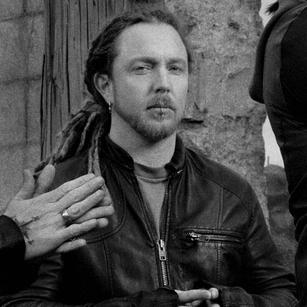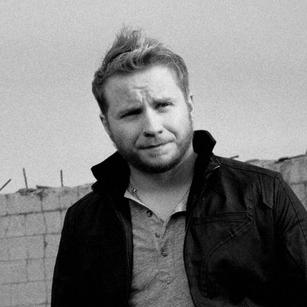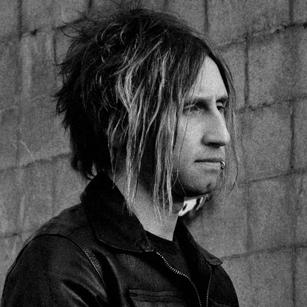
 the band
the band
Band History
Early in 2007, producer Rob Cavallo asked Shinedown frontman Brent Smith about his goals
for the band's new album. Smith didn't hesitate.
"I said, 'You know what -- when I'm dead and gone,
when everybody in this band has passed or what have you, I want the world to remember this as a record that
needed to be made, and that there was a reason for it,' " Smith says. "That was the motivation behind this
album.”
"And part of the reason it took so long to make!"
Welcome then to THE SOUND OF
MADNESS, Shinedown's third album -- and the Florida rockers' boldest effort to date. Like its two
predecessors, 2003's Platinum LEAVE A WHISPER and 2005's Gold US AND THEM, THE SOUND OF MADNESS offers a
brave and unsparing look into the soul and psyche amidst a fierce musical attack that, even in its quieter
moments, vibrate with the passion, energy and focus of a band with high-minded ideals and limitless
ambitions.
Smith and company began the recording process for THE SOUND OF MADNESS with the formidable
task of following up two massively successful albums that yielded a staggering seven consecutive Top five
rock and alternative radio hits that included "Fly From the Inside," "45," the chart topping "Save Me," and
a cover of Lynyrd Skynyrd's "Simple Man," along with a reputation as a hot live band with an insatiable
appetite for the road. However, after one listen, it’s clear that the band didn't shrink from the task.
Where THE SOUND OF MADNESS differs most is in its growth; it’s the product of a group that has developed an
even clearer vision for how it wanted to impact an audience.
"Lyrically, these songs are the most
blunt that I've ever written," says Smith, who formed Shinedown with drummer Barry Kerch in 2001 in
Jacksonville, Fla. "I feel that on this record I wrote what a lot of people want to say, but they just don't
know how to say it -- not that I should tell anyone how to live their lives, but I've had these experiences
and these thoughts that are in my head. And I can't believe I'm the only one who feels the way I do. So I
just tried to express that in the most artistic and the most honest way I possibly could."
On THE
SOUND OF MADNESS, Smith and Shinedown express those thoughts and ideas in ways they never have before. The
group's hard rock muscles flex on songs such as the first single, "Devour," "Cry For Help," "Sin With a
Grin" and the title track. But the likes of "The Crow and the Butterfly," "Breaking Inside" and their latest
single "Second Chance" incorporate more sophisticated, emotional dynamics (enhanced by a 20-piece string
section), while Smith counts "If You Only Knew" as his first straight-up love song.
"A long time ago
I said, 'I'll never write a love song. I'm not that guy,' "Smith recalls with a laugh. "I just never had a
reason to write a love song before. But this song was written the day that I found out that I was going to
be a father. My son has given me a whole different perspective on things, especially love."
THE SOUND
OF MADNESS also contains Smith's first-ever political song “Devour,” which he says was inspired by
Shinedown's visits to troops in Iraq and his feelings about the end of George W. Bush's
presidency.
"I won't lie; I got really angry," Smith explains about the first single. "This is my
statement to him; 'This is the end of your presidency, and this is what you have to show for it' -- Not that
everything he did was bad or wrong. I don't want to get too political, because I'm not a political person.
But after coming back from Iraq, I just had to write that song and get it out of my
system."
Elsewhere on THE SOUND OF MADNESS, listeners will find Shinedown waxing autobiographically
("Second Chance" is about Smith leaving his native Knoxville, Tenn., to pursue a career in rock 'n' roll;
"What a Shame" is an elegy to a beloved late uncle) but also crafting insightful observations gleaned from
the hundreds of shows and millions of road miles the band has logged.
"In the seven years of this
thing called Shinedown," Smith says, "I've seen a lot of different things - what we've all gone through on
the road, things in our personal lives or witnessed firsthand through the fans that we've made and the
relationships we've built with our audience. I think the biggest thing was I didn't want to sugarcoat the
way life can be sometimes. This is my viewpoint. This is my view of every day life."
Kerch,
meanwhile, says THE SOUND OF MADNESS succeeds most in putting some sonic power behind the power of Smith's
expression.
"We wanted to come out of the gate crushing," the drummer explains. "We really wanted to
make a statement with this record and make it bigger than life -- a big rock album that made a statement
that, 'Alright, we're back. This is our third record, and this is what we're about.”
By the time
Shinedown first met with producer Rob Cavallo -- whose own Grammy award winning, multi-platinum track record
includes work with Green Day, My Chemical Romance, the Goo Goo Dolls and Kid Rock -- the frontman had a
number of songs already together and further dazzled the producer by improvising a new composition during
their discussion.
"I was just taken with (Smith)," Cavallo says. "He was really just on fire to do
well. He's a guy driven to win. He wants to make the best record he can make and spent a lot of time writing
...making sure it all mattered."
Cavallo, meanwhile, entered THE SOUND OF MADNESS with his own agenda
for Shinedown's next step.
"I thought they definitely had a greater potential than the success they'd
already achieved," he explains. There's no reason a guy with that voice and intensity shouldn't be able to
go all the way. We decided to make sure that the songs had that potential."
Smith heard the message
loud and clear. He left the first meeting with Cavallo and returned with nearly 60 songs by the fall, when
Shinedown entered the studio in Los Angeles. The group wound up recording 15, including some -- such as "Cry
For Help" -- that were written in the studio during the recording process.
All the while, however,
Smith says that Shinedown "wanted it loud and wanted it big and heavy and grandiose. For the heavy songs, we
wanted it as heavy as it could be, but using different kinds of styles with a lot of different guitar
tones." Incorporating synthesizers and the aforementioned strings, Smith notes that, "we used a lot of
really unique sounds and different variations underneath the music that you wouldn't necessarily know were
there, but, if they were gone, you'd miss them."
Kerch says Cavallo's role in helping attain that
layered sound cannot be understated. "He brought to the table not only knowledge of music in general but a
lot of patience and a real comfortable environment," Kerch recalls. "He would sit on the couch and we'd be
playing a take and he'd pop up and go, 'Oh fuck! This is what we have to do!' and come out and literally
show us. He was so energetic and made everybody want to do better."
That bigger sound on the album is
mirrored in the new lineup of Shinedown, a revamped edition of the band that, along with drummer Kerch (or
‘the almighty Barry Kerch’ as Smith likes to say), includes Eric Bass on bass and former touring guitarist
Zach Myers as a permanent fixture.
"All of a sudden it started growing into this other thing," Smith
says. "These guys are brilliant, brilliant players. It's a reinvention, and it's stronger."
Smith
plans to take keep this "new reincarnation" of Shinedown on the road for quite awhile, too, making sure THE
SOUND OF MADNESS is heard worldwide. A justifiable pride in the album as well as a growing international fan
base for the band will lead to an even further evolution in which the record that "needed" to be made will
similarly need to be heard in a live setting.
"I sometimes look at Shinedown as an entity unto
itself," Smith says. "It keeps evolving all the time, like it actually has a heartbeat. It's not a machine;
there's actually blood flowing through it. From the time we came up with the name, it's felt like it's
conducting us and flowing through us. It's weird -- but it's pretty wonderful, too." .
 Barry
Barry Zach Myers
Zach Myers Brent Smith
Brent Smith Eric Bass
Eric Bass